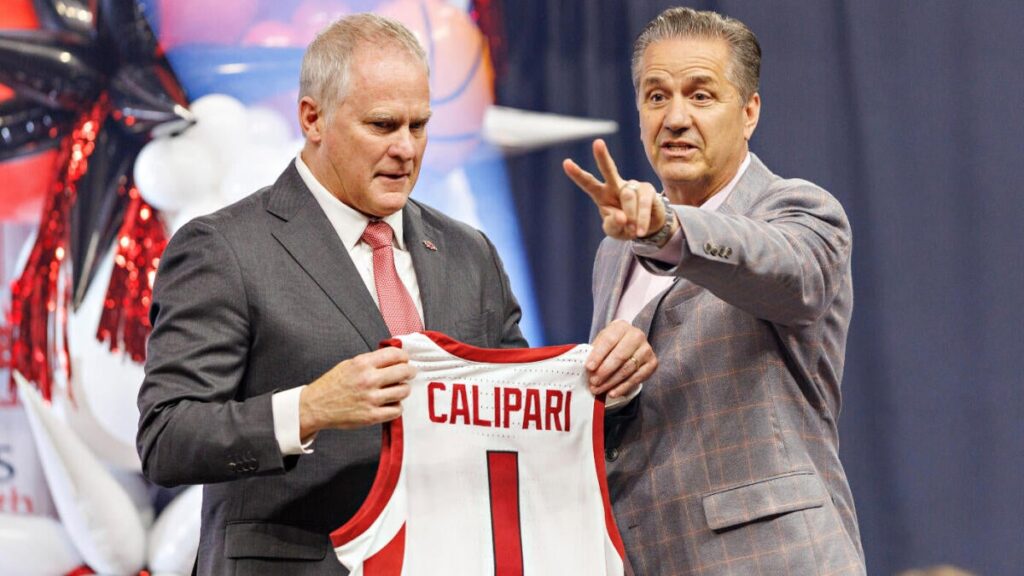Hunter Yurachek stood in front of a group of supporters at the Little Rock Touchdown Club earlier this week and more or less compared recruiting in this era of college athletics to driving down the interstate without any police. After setting the analogy up, the Arkansas athletic director asked his audience a question.
“Let’s all raise our hands,” Yurachek said. “If you’re driving down I-40, and the speed limit is 55, but you know a state trooper is not going to be out that day, how many of us are going to go 65?”
Lots of hands went up.
At that point, Yuracheck’s point was made. And if you’re wondering how the House Settlement is going since being implemented this summer, humbly, I’m compelled to tell you it’s going about as poorly as I predicted it would go when I wrote about the issue back in June.
In that column, among other things, I explained why the implementation of the House Settlement would bring “high-level cheating” back to college athletics. Now, barely three months after typing that sentence, we have a power conference athletic director indicating that he’s internally struggling while trying to decide whether to have his department play by the rules as he understands them or, circling back to the analogy, drive 65 even though the speed limit is 55 because — again, this was certainly the suggestion — he believes too many of his department’s competitors are driving 65 (or faster) with no state troopers in sight.
Lack of talent, revenue sharing, transfer portal create unique college basketball recruiting cycle for 2026
Travis Branham
“So you have to decide, as an athletic director, are you gonna get out in this lane that you know you’re not supposed to be in and operate without the highest level of integrity — or do you wanna stay in these two lanes?” Yurachek said. “And that’s where the rub is coming right now in college athletics. And until we get our enforcement agency up and running, you’re gonna continue to have schools operating in that third lane. And that’s a bad place to be, in my opinion. It’s bad for college athletics. And I don’t wanna operate there. But, I think, to be competitive, we may have to figure out what that third lane looks like for the University of Arkansas.”
Changing lanes
I hope you recognize how fascinating of a statement that is from a sitting AD. For decades, college administrators have routinely stressed the importance of following the rules and, you know, “just doing things the right way.” Whether they actually believed it or not, that’s usually what they stressed. Now, a prominent athletic director at a place that’s won national championships in both football and basketball is publicly stating it might be time for his school to do things even he isn’t completely comfortable with.
What does Yurachek mean?
As my colleague Matt Norlander detailed Monday, the chaos of the previous era created by big NIL payments with basically no restrictions has been replaced by … total confusion. Simply put, a lot of the big NIL packages that were offered to players in recent years, before the House Settlement created guidelines, are now considered illegal, at least relative to how most have interpreted the rules. But what Yurachek suggested is that he thinks other schools are pushing the boundaries, racing to the gray area and, in some cases, making financial offers to prospects that should be impossible relative to the new rules. So, in Yurachek’s mind, Arkansas might now have a choice to make: The athletic department can continue to play by the rules as he understands them or start driving 65 in a 55 with the justification being that others are already doing it, seemingly unconcerned about any repercussions, and that continuing to refuse to join them will place the Razorbacks at a competitive disadvantage, especially in football.
Honestly, it’s a reasonable point.
But, more than that, it’s a point that illustrates that the House Settlement was never going to work the way the people who believed in it said it would. After having non-collectively bargained rules for decades that put limits on what athletes could earn only to watch coaches break those rules every year, it’s hilarious that anybody thought implementing new non-collectively bargained rules that put limits on what athletes can earn would lead to anything other than coaches attempting to break these rules just the same.
New rules, new problems
As predicted, cheating is back!
Lies are rampant. Confusion reigns.
And that’s because, as I wrote back in June, when a solution to a problem just creates more problems, you’re not really fixing anything as much as you’re trading in one set of issues for a new set of issues that will have to be addressed again, sooner or later. Now, less than three months after the House Settlement took effect, many of the men and women working in college athletics seem as confused as ever about what’s allowed and what isn’t, about what should be done and what should not. And one of them, the athletic director at Arkansas, obviously filled with frustration, just decided to use a public appearance to wonder aloud about whether it’s time for his school to push the pedal down a little more, rules be damned.
Read the full article here


